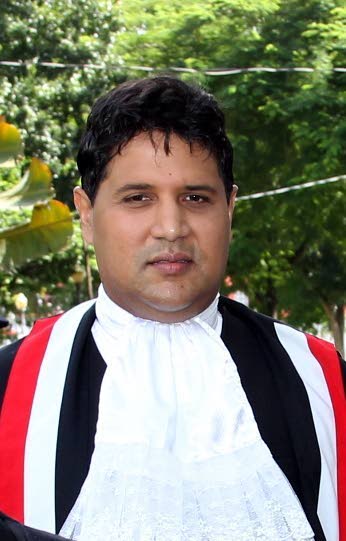Man arrested for non-payment 3 years after he paid $1,000 fine

In 2015, Patrick Awong was issued a fixed-penalty ticket for a traffic offence.
He pleaded guilty when he appeared in the magistrates’ court, was fined $1,000 and paid it on the last day of the 14 days he was given.
Three years later, Awong was arrested for not paying the fine and was kept in custody for eight hours.
He was eventually released when his brother paid $1,000.
After his release, Awong was refunded the $1,000 his brother had paid.
Awong is the brother of the chairman of the Couva/Tabaquite/Talparo Regional Corporation, Henry Awong.
Justice Frank Seepersad dismissed an application by the State to strike out a constitutional claim brought by Awong.
With the increase in the number of offences for which fixed-penalty tickets and fines can be imposed – including fines for not wearing masks in public – the judge is calling for the digitisation of official records available to different arms of the State.
In its application, the State argued that Awong’s constitutional claim was an abuse and he should have filed a false imprisonment claim instead.
Seepersad rejected this, saying if a citizen was arrested, and detained, after paying the penalty on a fixed-penalty ticket, the constitutionality of such a circumstance becomes a live issue.
“Ultimately, the court should always prioritise and give effect to the fundamental rights and freedoms afforded to citizens subject of course to the lawful and justifiable limitations.
“If administrative deficiencies are manifest and result in the deprivation of a citizen's freedom, then the interplay with the rights outlined under sections 4(a) and (b) of the Constitution must be explored,” he said.
Seepersad pointed to the existence of several offences for which fixed-penalty tickets and fines can be imposed.
He said because of this, “the administrative systems of the State should be operated with heightened accuracy and efficiency so as to ensure that fines which are paid are duly recorded.
“There is need for digitalisation of official records and for interconnectivity between different arms of the State. There ought to be no room for systemic shortcomings as the constitutional entitlements of citizens should not be subject to careless circumvention occasioned by administrative inefficiency,” he added.
Seepersad said the need for accurate record-keeping on the payment of fines under the fixed-penalty regime was now important.
“And where a citizen has paid a fixed penalty and/or complied with an order of the court, such a citizen is entitled to presume that, having discharged his/her obligation to the State, no further consequence will be imposed.
“Surely, no such person would expected to be arrested several years ex-post-facto,” he added.
Seepersad said a proper explanation of what happened in Awong’s case should be provided as a matter of public interest, and systems put in place to prevent it from happening again.
In dismissing the State’s application, Seepersad ordered the State to pay Awong’s costs.
He was represented by Anand Ramlogan, SC, Alvin Pariagsingh and Che Dindial. Stefan Jaikaran and Amrita Ramsook appeared for the Attorney General.
-


Comments
"Man arrested for non-payment 3 years after he paid $1,000 fine"